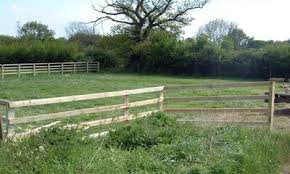”Nor shall private property be taken for public use without just compensation.”
Fifth Amendment
This week in court we will be discussing the case Murr v. Wisconsin, which was granted to be heard by the Supreme Court in January 2016; the case is still pending. This case specifically revolves around the idea of personal property; I know it may not be the most interesting topic, but bear with me. 
In 1960 in St. Croix County, Wisconsin, the parents of Joseph P. Murr bought two adjacent lots of land that totaled to about .98 acres. In the mid 90s the parents transferred the land to their children, and in 1995 the two lots were combined to create one large lot. In St. Croix County there is an ordinance that prohibits the individual development or sale of adjacent lots, if they are owned by the same person, unless when totaled they occupy a space greater than one acre, but the land owned by the Murrs did not. To clarify, a lot must be at least one acre to be sold or if multiple acres are combined together they must collectively equal one acre in order to be sold separately. Years later the Murr family wished to sell only one lot that they owned, but were denied by the St. Croix County Board of Adjustment. The Murr family sued the state and county stating that the ordinance results in an unjust and uncompensated seizure of their property and deprived them of “all, or practically all, of the use of Lot E because the lot cannot be sold or developed as a separate lot.” All local and state courts held that the Murrs had not been deprived of the use of their property.
This case, although a little drier than others at its surface, touches on a very foundational right: the right to own property and to choose what one does with it. This case poses the question of, can local and state governments regulate personal property, and in such a way that the owners cannot decide themselves how to sell or develop their land? Who has the final say on property and its regulation: those that own it or some form of government? For without some form of regulation, would not the ownership of property become chaotic?
Links:
https://www.oyez.org/cases/2016/15-214

